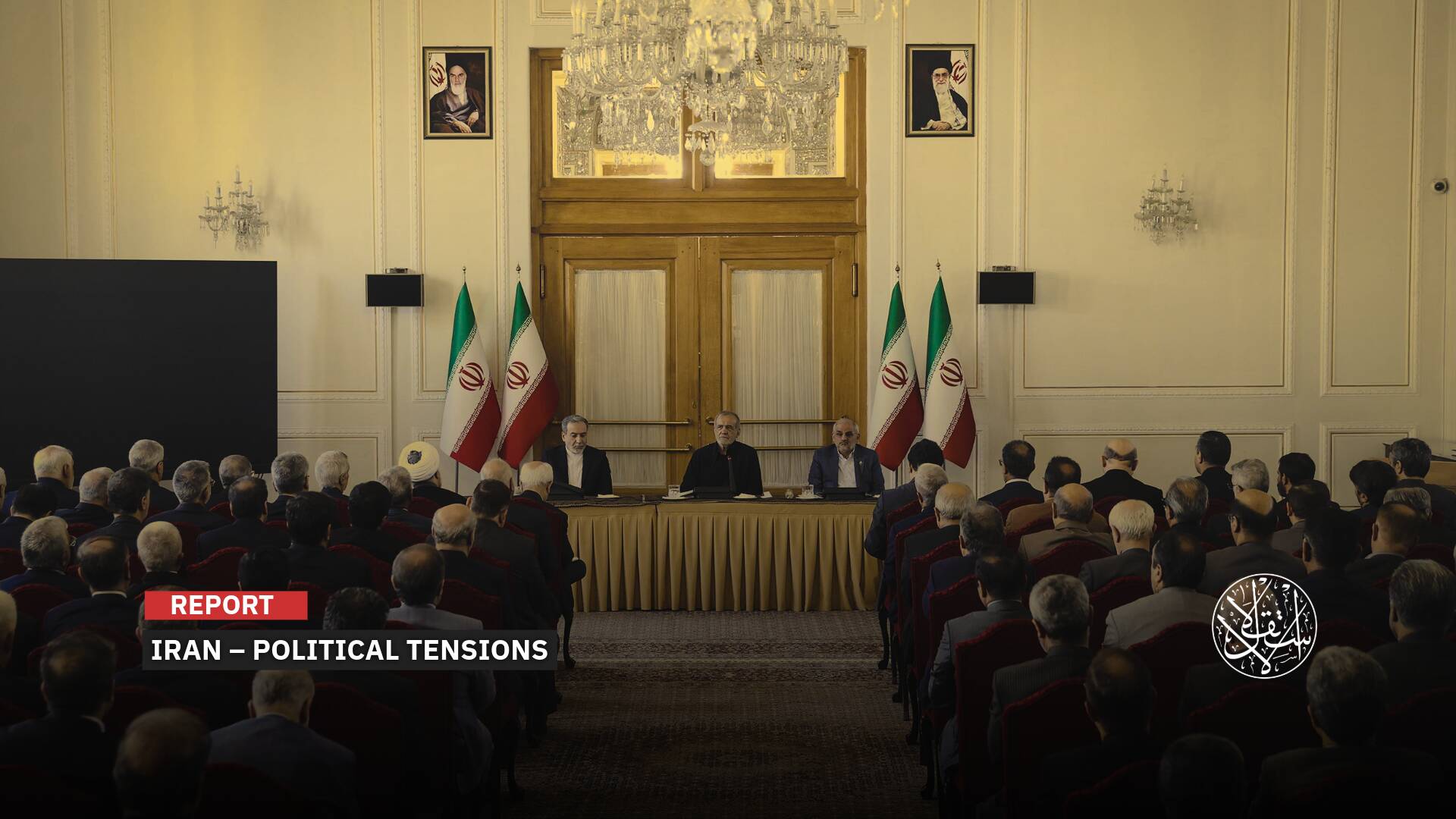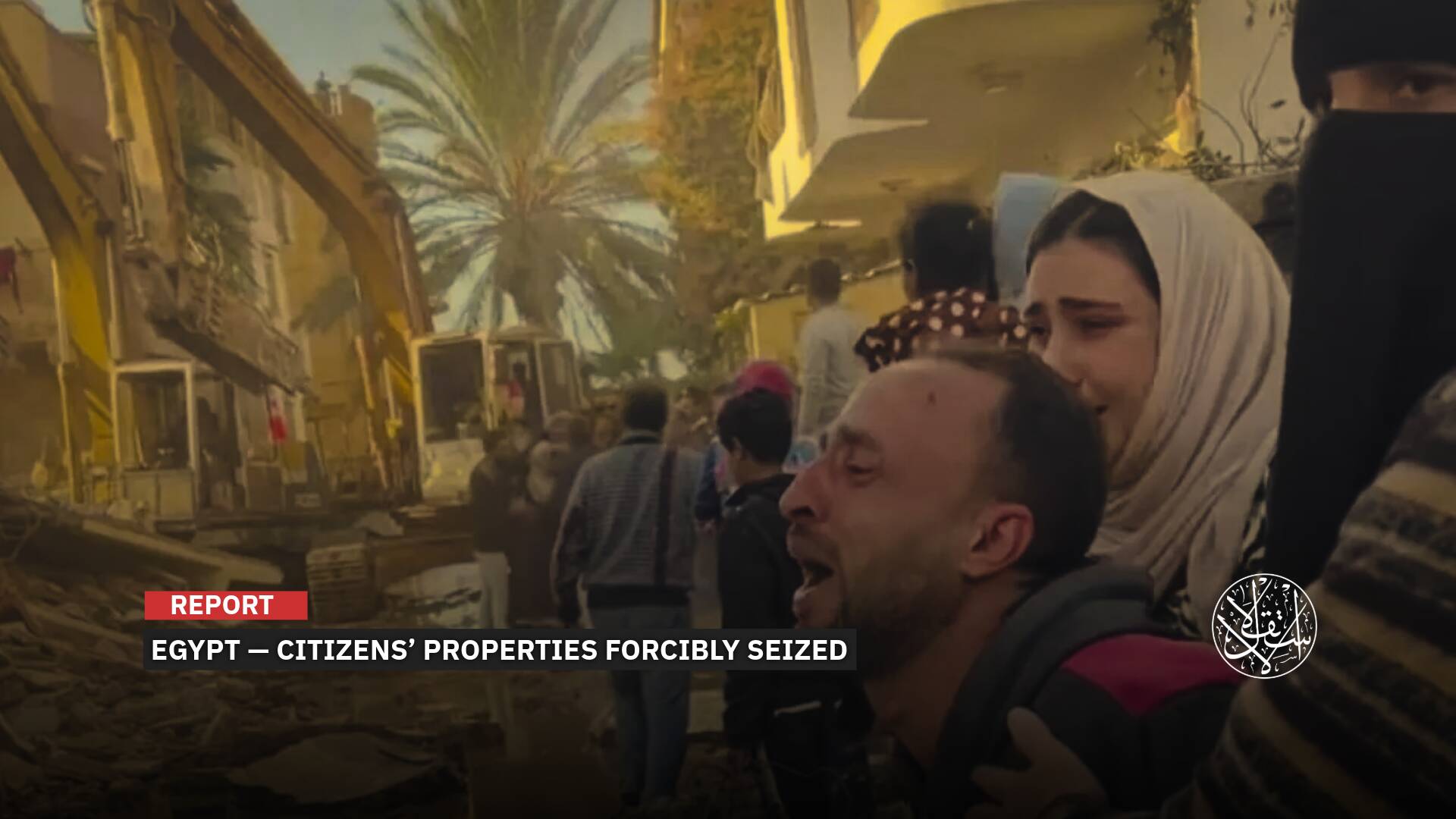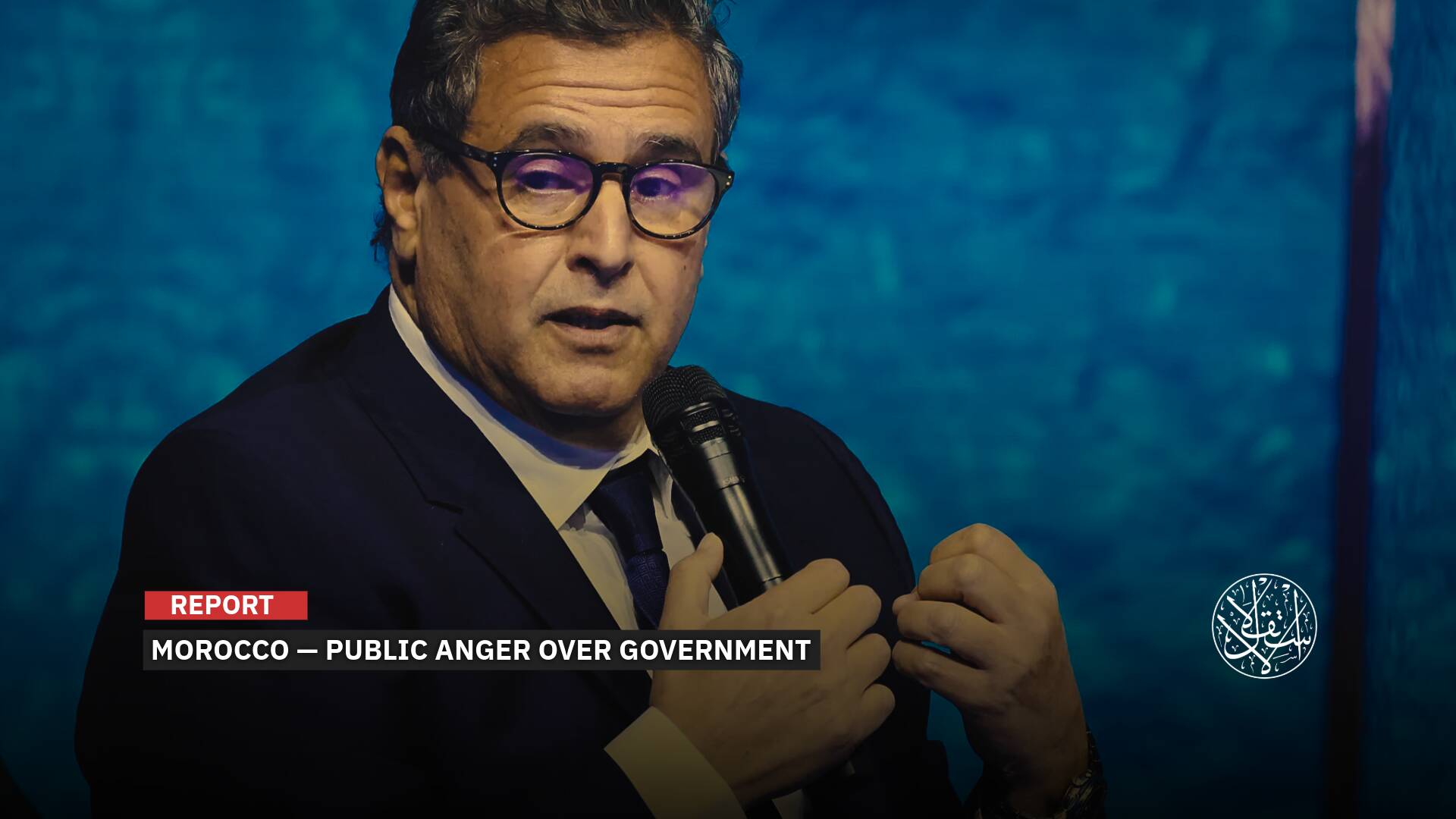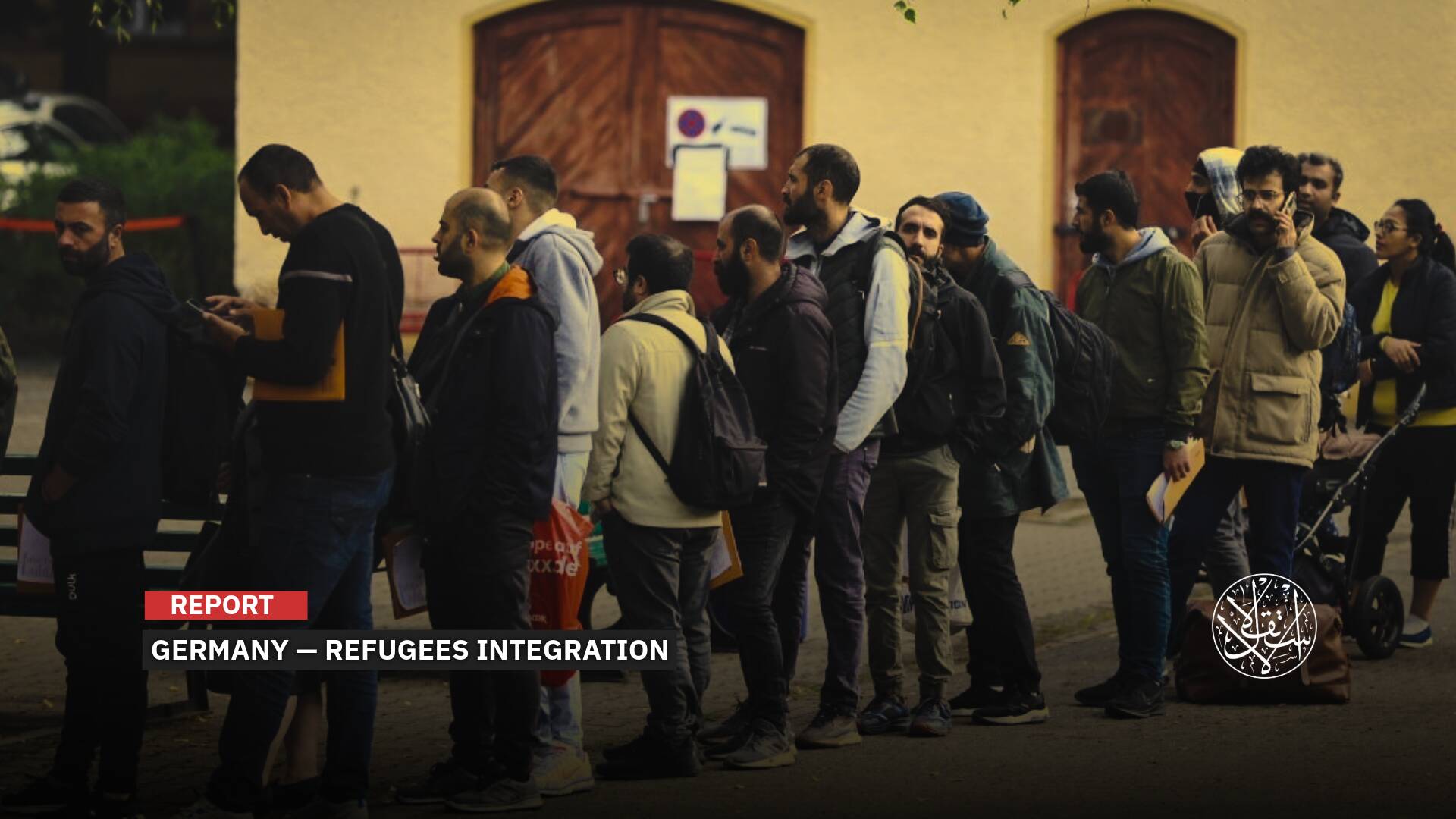The Houthis Took Over the Biggest Banks in Yemen; Reasons and Effects
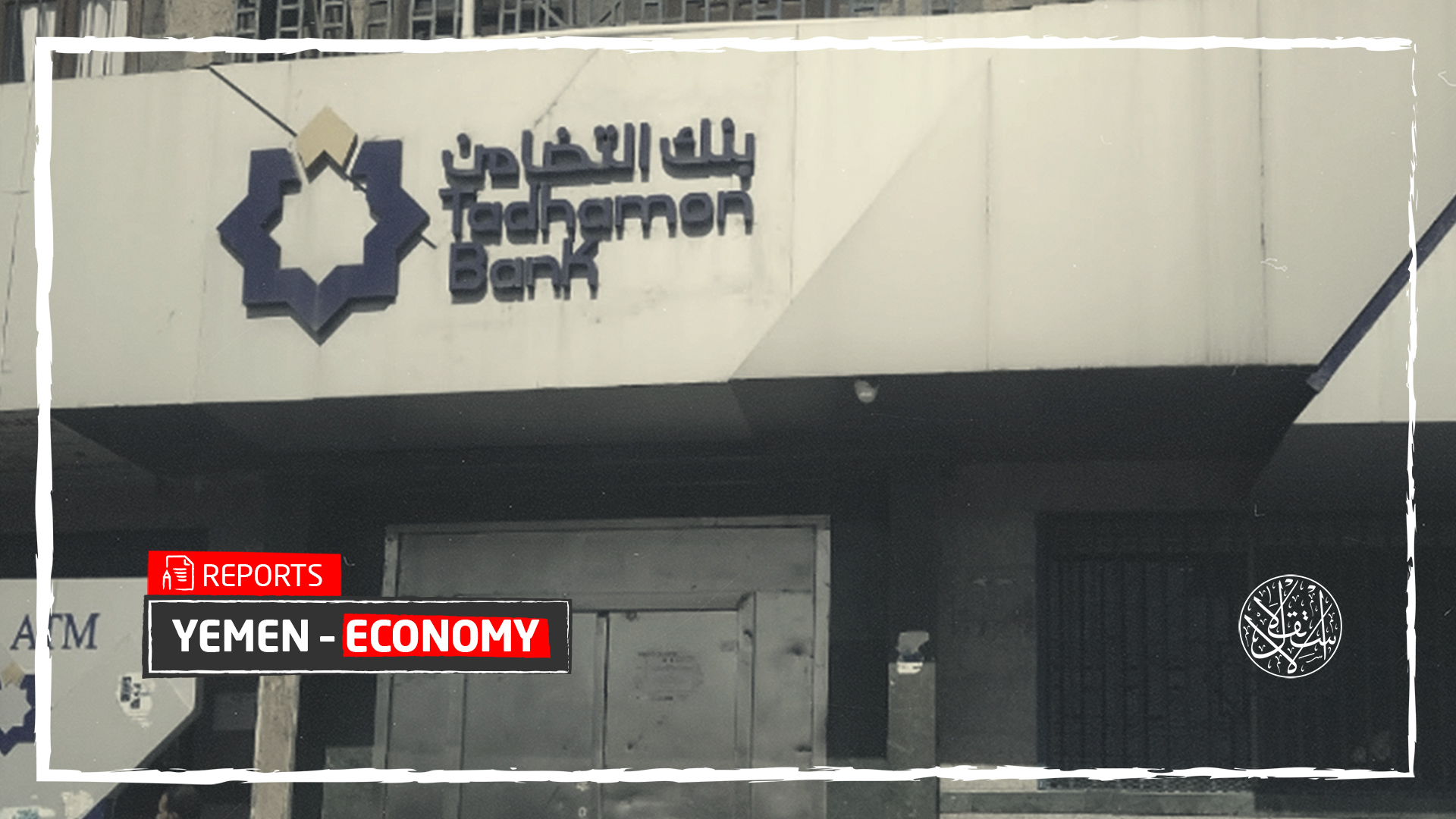
Parallel to the political crisis in Yemen, another economic crisis is exacerbated by the Houthi Militia. This is causing further deterioration of the country, which has been suffering successive shocks for more than 6 years.
In early July 2021, the Houthi group that controls the capital, Sana'a, seized the assets, funds and deposits of Al-Tadhamon Islamic Bank, the largest private commercial bank in Yemen.
In an urgent note, the Central Bank of Yemen, which is under the control of The Houthis, directed all financial agencies, exchange companies and commercial banks to seize the funds of Tadhamon Bank and to supply all its funds to the Central Bank.
According to the Central Bank, this order is based on a memorandum by the Head of the Specialized Criminal Prosecution (affiliated with The Houthis), Abdullah Zahra.
This action was not the first against Tadhamon Bank. In November 2020, The Houthi Militia stormed the bank and ordered everyone there to stop working, under the pretext that the bank was engaging in activities that threaten the economy of Yemen.
A statement issued by the bank at the time stated that intelligence agents came to the bank’s headquarters in Sana’a, and demanded that all of its branches be suspended, based on instructions issued by the Central Bank, as it was said.
It is worth noting that Al-Tadhamon Islamic Bank was established in 1996, according to the Islamic Banking Law, and is owned by the "Hayel Saeed Anam" group, the largest economic group in Yemen.
Al-Tadhamon is one of the largest private Yemeni banks in terms of deposits, and it has the largest customer base in the country, with a capital of about $80 million, and managing assets worth $2 billion. It operates through 37 branches distributed over all governorates.
The bank also owns a number of local and regional companies, including "Tadhamon Capital" in Bahrain, "Al-Tadhamon Microfinance Program", and "Al-Tadhamon Real Estate.”
Refusing To Execute
The memorandum did not indicate the reasons for which the bank's balances were seized and confiscated, but this came after the refusal of the Tadhamon Bank to implement the court's decision to confiscate the assets of President Abd Rabbo Mansour Hadi in Al-Tadhamon and supply them to the Central Bank of Yemen under the control of the Houthi.
The Specialized Criminal Court had issued a memorandum on June 27, 2021 ordering the Central Bank of Yemen to confiscate the assets of President Abd Rabbo Mansour Hadi deposited in Al-Tadhamon Bank and transfer them to the Central Bank of Yemen.
The document revealed that President Hadi owns 31 billion Yemeni riyals and about 290 million riyals (a dollar is equivalent to about 600 riyals) in a bank portfolio with Al-Tadhamon, in addition to a current account of about 907 billion riyals, and 722 million riyals, in addition to an amount of 636 billion Saudi riyals and 221 million Saudi riyals.
According to the memorandum, the confiscation came based on the charges against Mansour Hadi, including compromising the independence of the republic, aiding the enemy, and a court ruling was issued in 2019 in which the Houthi group ordered to sentence to death President Hadi and to confiscate of all his money.
In response to a procedure to seize and confiscate Hadi’s assets, the management of Al-Tadhamon Bank sent a memorandum to the governor of the Central Bank, in which it said that “the International Sanctions Committee had previously warned Yemeni banks against dealing with the decisions of the criminal prosecution and the judicial guard in Sana’a,” explaining that the implementation of these decisions, according to the Committee Sanctions belong to money laundering and terrorist financing."
According to a former official in Al-Tadhamon Islamic Bank, the bank refused to implement the ruling that stipulated the supply of President Hadi’s assets to the Central Bank, for fear of imposing international sanctions on him under the pretext of supporting the Houthis, especially since there are Houthi figures included in the US sanctions list.
He added to Al-Estiklal that Al-Tadhamon Bank responded to the Houthi group by saying: take what you confiscated from President Hadi funds in the Central Bank when you entered Sana'a.
This prompted the Houthis to issue a directive to immediately seize all the balances and deposits of Al-Tadhamon Bank.
Legitimizing the Seizure
The Houthis usually use the judicial institutions as tools to legitimize its procedures by confiscating private and public properties, and they also seek to exert pressure and blackmail on these financial institutions.
On July 19, 2020, the Houthi group appointed Ibrahim Al-Houthi as chairman of the Board of Directors of the Agricultural Cooperative Credit Bank, the largest government bank, according to a decision it described as “republican.” In December 2017, it seized the bank’s documents and archives and transferred them to an unknown place.
It appears that the Houthis are seeking to close the Yemeni banking market and forcing external financial institutions and international organizations to deal exclusively with Houthi exchange companies.
It is worth noting that the confiscation of Tadhamon Bank's assets came about two weeks after the issuance of US economic sanctions on exchange companies affiliated with the Houthis, which are usually linked to Iranian banking companies, or financial companies that facilitate the group's activities.
The Houthi group was not limited to confiscating Yemeni financial institutions, but also exceeded them to major educational and commercial institutions. In January 2020, it seized the University of Science and Technology, the largest private university in Yemen, by a decision of the group's "judicial guard", and arrested the university's president, Hamid Aklan to replace him by the Houthi leader, Adel Al-Mutawakel.
The Yemeni government considered the Houthi group's decision to seize all the funds and balances of the largest banks, as an extension of its approach based on targeting the banking sector, looting money and businessmen, and destroying the currency and the national economy.

Illegal Court
SAM Organization for Rights and Freedoms (based in Geneva, Switzerland) condemned the decision issued by the Houthi group, which stipulated the confiscation and seizure of all balances, funds and deposits of Al-Tadhamon Bank, and said on July 2, 2021, that it is an "unfair decision and disgraceful behavior that threatens the remaining deteriorating economic margin in the country."
The organization interested in the Yemeni file considered, in a statement, that this procedure is "illegal behavior as it was issued by a court that is not competent in commercial disputes, and is subject to an illegal coup authority, which has been implementing a series of exclusionary measures against the banking sector, including Tadhamon Bank and its branches, a few months ago."
It added, "The issuance of this decision coincided with a series of rejection statements related to the national currency issued in the same week by the rebellious Sana'a centers, which makes this decision just a reaction directed against a number of targets.
SAM stressed its monitoring of "the behavior of the Houthi militia authorities in Sana'a, with regard to rights, property and economic issues related to the fate of the people, starting with the black markets for oil and gas derivatives, the national currency and levies, passing through money laundering networks, supporting terrorism and smuggling international taboos."
Sources
- بنك التضامن يخاطب محافظ البنك المركزي "الحوثي" لإنقاذه من النيابة الجزائية الحوثية والحارس القضائي
- اليمن.. "الحوثي" تحجز على أموال أحد أكبر بنوك البلاد
- بنك التضامن يقول إن مصادرة الحوثي لأموال “هادي” يعرضه لضغوطات وعقوبات مجلس الأمن
- اليمن: جماعة الحوثي تصادر أموال أكبر بنك تجاري وتتخذ إجراءات اقتصادية تعسفية




